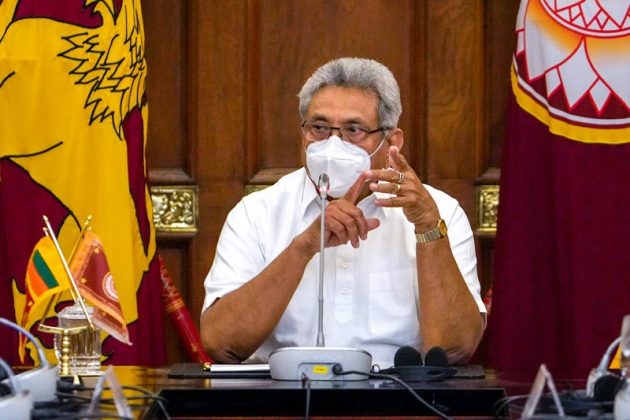
Gotabaya Rajapaksa, Sri Lanka’s President is “exploiting the novel coronavirus pandemic to undermine the few checks and balances remaining against authoritarianism and sharpening tensions” writes J S Tissainayagam for the International Policy Digest.
“The Sri Lanka president’s rhetoric and actions to contain the pandemic will destabilise Sri Lanka and make him a poster boy in the expanding list of populist-led governments that Western democracies view as a threat.”
Following the coronavirus outbreak on the island, Rajapaksa “undertook three sets of actions to sow discord between Sri Lankans and acquire more power for himself. First, Rajapaksa insisted that the curfew be enforced zealously. The police detained curfew violators that by March 28 had risen to 4,600 and by mid-April to 22,000.”
“Second, Rajapaksa made Lt General Shavendra Silva head of the national operations centre preventing the spread of Covid-19” and filled the response team with other “loyalists”.
“Soon thereafter, the government and Silva displayed their clear bias. When the government set up a rehabilitation centre for Covid-19 patients in the Sinhala majority Western Province, protests erupted. Public sentiment was heeded, and the quarantine centres were moved to the Tamil and Muslim majority Eastern Province. The people there, already overwhelmed by years of militarisation and afraid of the rehabilitation centre spreading the virus, protested as well, but they were ignored.”
“Third, Rajapaksa is using the pandemic to stifle freedom of expression. On April 1, the police were issued instructions to ‘take legal action against those who publish posts on social media criticising government officials and obstructing their duties.’”
“While domestic criticism of Rajapaksa remains ineffectual, the international community has been silent. Western democracies offer only muted criticism of leaders who exploit the pandemic to enhance their already robust powers in questionable ways.”
Read the full article here.
We need your support
Sri Lanka is one of the most dangerous places in the world to be a journalist. Tamil journalists are particularly at threat, with at least 41 media workers known to have been killed by the Sri Lankan state or its paramilitaries during and after the armed conflict.
Despite the risks, our team on the ground remain committed to providing detailed and accurate reporting of developments in the Tamil homeland, across the island and around the world, as well as providing expert analysis and insight from the Tamil point of view
We need your support in keeping our journalism going. Support our work today.
For more ways to donate visit https://donate.tamilguardian.com.

